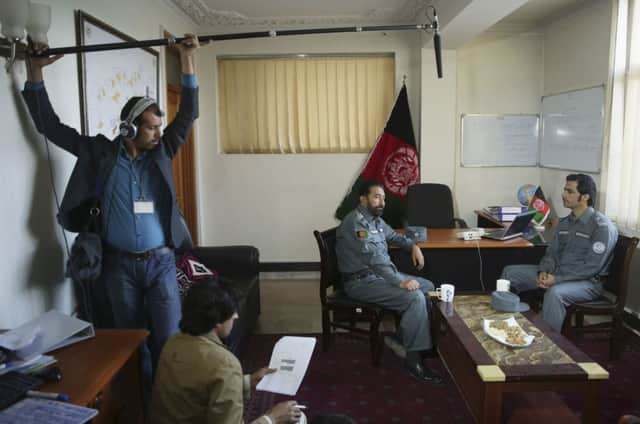TV soap opera battles for Afghan hearts and minds


Innocent Heart, a six-part drama being broadcast this week, tells of Kabir, a 12-year-old boy who returns home only to fall in with the Taleban and to see his life unravel as he learns violence doesn’t pay and that democracy is the best way forward.
It is being screened as Afghanistan tries to move from a war footing to democracy, and foreign troops withdraw after more than 13 years of fighting.
Advertisement
Hide AdAdvertisement
Hide AdWhile the Taleban banned TV during their rule, foreign-funded TV soaps such as Innocent Heart now entertain viewers with stories that reflect their own lives, while promoting change in what is still a conservative, poverty-stricken Islamic country.
“This type of messaging is very successful within a drama, as opposed to a documentary or a public service announcement, as people become attached to the characters because it is long-form TV,” Trudi-Ann Tierney, the show’s Australian writer, said.
Independent TV networks grew rapidly in Afghanistan after the 2001 US-led invasion that toppled the Taleban. Most TV time, however, is taken up by cheaply produced game shows, talent quests and dubbed soaps from India and Turkey, as few stations are interested in making expensive dramas that might not appeal to advertisers.
CONNECT WITH THE SCOTSMAN
• Subscribe to our daily newsletter (requires registration) and get the latest news, sport and business headlines delivered to your inbox every morning
As a result made-in-Afghanistan dramas rely on foreign aid funding, which comes with the condition that the shows carry positive messages.
In the case of Innocent Heart, the US Agency for International Development bankrolled its production.
Similar previous programmes have made a discernible impact on public attitudes, said Ms Tierney, who has been making TV shows in Afghanistan since 2009.
Police action series Eagle Four, a 2010 hit akin to the US thriller 24, sought to change public views of the police at a time when they were widely distrusted.
Advertisement
Hide AdAdvertisement
Hide AdThe show also had women officers who were tough and smart, challenging traditional attitudes that women should be confined to the home.
“As the characters are learning along the course of the drama series, the audience is learning as well,” said Ms Tierney, who also worked on Eagle Four. “Of course, they’ve got to be entertaining, as you don’t have a captive audience, and the messaging has got to be subtly embedded into the story line. If it’s too obvious or didactic, people know they are being preached to and they tend to switch off.”
Television dramas remain a major way to reach Afghans, as just a quarter of the population is literate. Some 90 per cent of people living in the capital, Kabul, have access to a TV, and percentages drop in rural areas, according to a 2010 study.
With Innocent Heart, its producers hope that, while being entertained, viewers also will learn through Kabir’s plight.
“We are addressing violence, the radicalisation of young people, community resilience, and the fact it is a vulnerable child who is the perpetrator of a terrible crime will connect with people on an emotional level, which makes for very powerful television,” Ms Tierney said.
SCOTSMAN TABLET AND IPHONE APPS